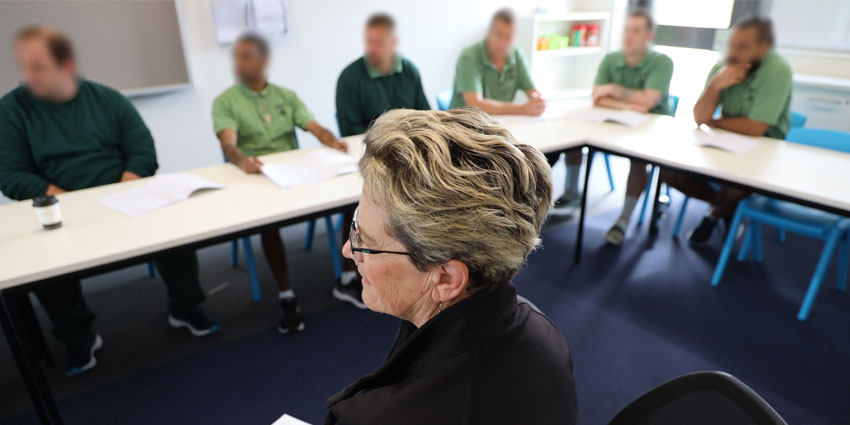
The nine-month program, called Solid Steps, was developed by the Department of Justice in conjunction with external service providers the Palmerston Association and Wungening Aboriginal Corporation.
It is the first residential alcohol and other drug rehabilitation program to be delivered in an adult male prison in Western Australia.
The participating prisoners are all volunteers from a number of sites across WA’s prison network. They are housed at the stand-alone Mallee Rehabilitation Unit within the maximum-security prison.
Department of Justice Director General, Dr Adam Tomison, said breaking the cycle of addiction is critical to improving community safety in the longer term.
"Solid Steps aims to deliver a holistic program which enables prisoners to reduce their alcohol and drug dependence by developing strategies and skills to address risky, harmful and destructive behaviours that lead to poor choices and criminality," Dr Tomison said.
"The program is based on a culturally safe, modified therapeutic community model. It also strengthens connection to self, family, culture and community."
Just over 40 per cent of the program’s participants are Aboriginal.
Solid Steps is delivered five days a week by trained health experts, counsellors and support staff.
Dr Tomison said support for the program graduates continues beyond the prison.
"A comprehensive through-care framework has been developed to support the participants’ recovery journey, whether they are transitioning back into the community or remaining in custody for now," Dr Tomison said.
"There's no sugar-coating the reality that breaking addiction to alcohol or drugs is hard – really hard – and it isn’t always achieved on the first attempt."
Dr Tomison said by investing in programs like Solid Steps, the Department of Justice hoped to drive recidivism rates down.
"If we can help the vast majority of Solid Steps graduates stop using alcohol and drugs and they then don’t commit any more offences, that’s a win-win," Dr Tomison said.
"There’ll be less people being harmed and less people as victims of crime. And these men will be leading more productive lives, which is really important for them and their families, and overall it’s going to be cheaper for the community."
One participating prisoner, a Noongar man who cannot be identified for privacy reasons, said he volunteered for the Solid Steps program after spending the past 20 years in and out of the justice system.
"It’s the longest I’ve been clean in the past 10 years and my confidence has grown every day that I can say no to drugs because I know what I’ve got in life, I know everything I can be thankful for in life and I don’t want to lose all that because I go down that same path of drugs and crime again," he said.
The Solid Steps program continues at the Mallee Unit with rolling intakes every four to six weeks.


